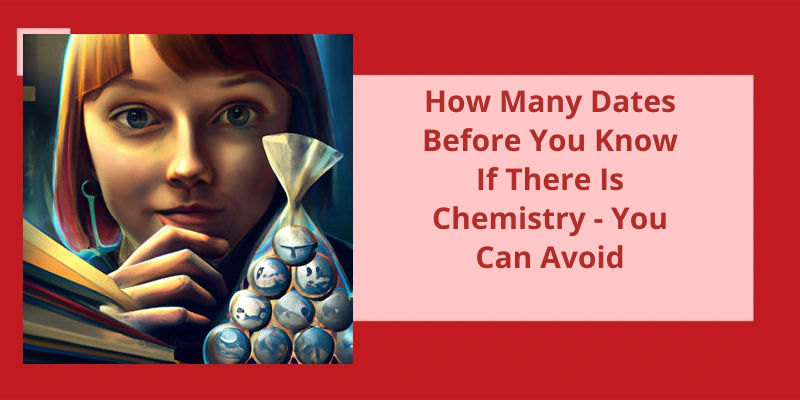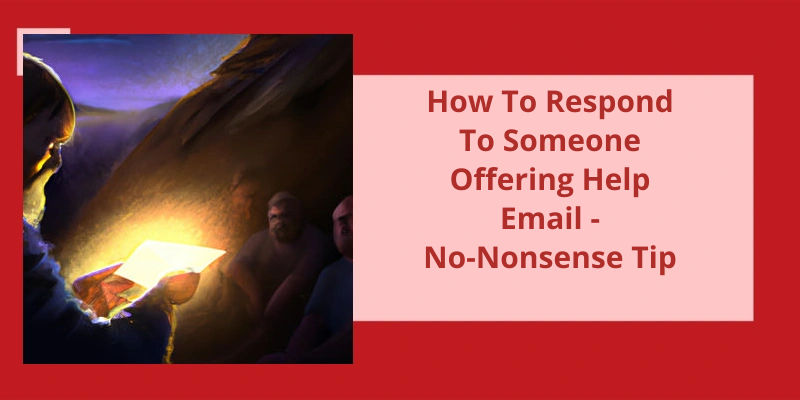When it comes to dating, the question of how many dates before you know if there’s chemistry can be a tricky one to answer. While some people may feel an instant connection or attraction on the first date, others may need a few more encounters to truly gauge their feelings. Three dates is often considered a good rule of thumb to give yourself enough time to see if there’s any potential for chemistry or attachment. However, it's important to remember that chemistry isn’t always something that can be forced or manufactured. If after three dates you're still not feeling any sense of chemistry or attachment, it's perfectly acceptable to give up and move on. It's better to be honest with yourself and the other person involved rather than prolonging something that isn't meant to be. On the other hand, if you want to keep trying, it's important to approach the situation with care and consideration for the other person's feelings. Communication is key – be open and honest about your thoughts and emotions, and listen to what your date has to say as well. Ultimately, you’ve the power to decide what feels right for you, and it's important to trust your instincts when it comes to matters of the heart.
How Many Dates Before Deciding No Chemistry?
When it comes to determining whether there’s chemistry between two people, the number of dates required may vary from person to person. However, hastily making a decision after just one date may not provide an accurate representation of the potential chemistry. It’s crucial to give enough time for the connection to develop and for both individuals to truly get to know one another.
Relationship expert Mason advises individuals to focus on one person at a time rather than dating numerous people simultaneously. This approach allows for a deeper level of connection and gives both parties an opportunity to explore their compatibility on a more intimate level. By going on three or four dates with the same person, both individuals can gauge whether there’s enough chemistry to move forward.
During the initial stages of dating, it’s essential to pay attention to how you feel when you’re around the other person. Do you enjoy their company? Is there mutual attraction and interest? These are vital questions to consider and can be better answered when given enough time to observe and interact with the other person.
Although it may be tempting to make quick judgments based on one or two dates, it’s advisable to resist that urge. Give the bond an opportunity to develop naturally and organically. By going on a few more dates and allowing for deeper conversations and shared experiences, you can gain a better understanding of whether there’s genuine chemistry between you and your potential partner.
It’s important to prioritize quality over quantity and take the time to truly connect with someone before making any conclusions.
Signs of Chemistry: What to Look for on a Date
When you’re on a date, there are certain signs of chemistry that you can look out for to determine if there’s a genuine connection between you and your date. These signs include:
1. Body language: Pay attention to your date’s body language. Are they leaning in, making eye contact, and mirroring your gestures? These are signs that they’re engaged and interested in you.
2. Conversation flow: Chemistry often results in an effortless and enjoyable conversation. If you find yourselves easily connecting and having a natural back-and-forth dialogue, it’s a positive sign.
3. Shared laughter: Laughter is a great indicator of chemistry. If you both share a sense of humor and find yourselves laughing together, it shows that you enjoy each other’s company.
4. Mutual interests: Discovering common interests and passions can create a strong bond. If you find yourselves excitedly discussing shared hobbies or values, it could be a sign of compatibility.
5. Flirting: Light-hearted flirting can be a sign of chemistry. Playful banter and teasing can show that there’s a spark between you and your date.
Remember, chemistry can be subjective, and not all of these signs may be present on the first few dates. It’s important to trust your instincts and give the connection time to develop naturally.
Through research, it’s been established that genuine chemistry is perceived through moments of acceptance, understanding, and support when individuals openly express their emotions, aspirations, and perspectives. Consequently, this implies that to discern good chemistry on a first date, meaningful interactions beyond mere small talk must take place.
How Do You Know if You Have Chemistry on a Date?
When it comes to determining if there’s chemistry on a date, it goes beyond superficial judgments like physical attractiveness or shared interests. Research suggests that true chemistry is experienced through a genuine display of acceptance, understanding, and support when someone opens up about their feelings, goals, and views to you. It’s in these moments of vulnerability and meaningful interactions that the chemistry between two people can truly be felt.
Small talk may help break the ice on a first date, but it isn’t enough to establish a deeper connection. True chemistry arises when both individuals engage in conversations that dig deeper and reveal their authentic selves. This could involve discussing personal experiences, sharing hopes and dreams, or even addressing past struggles. When both parties exhibit a willingness to listen and empathize with one another, it creates a strong bonding opportunity that can indicate the presence of chemistry.
Furthermore, body language plays a significant role in determining chemistry on a date. Paying attention to nonverbal cues such as eye contact, leaning in towards each other, and mirroring gestures can provide valuable insights into the level of attraction and connection. Genuine chemistry often manifests through a reciprocal display of these positive body language signals, indicating that both individuals are engaged and interested in each other.
Determining when to become exclusive in a relationship can vary greatly, but on average, it tends to happen after around 10 to 12 dates, according to a recent survey. However, if a couple has the opportunity to see each other more frequently, it might take around 24 dates before they decide to become exclusive. Ultimately, the timing depends on the individuals involved and the pace at which their connection develops.
How Many Dates Until You Become Exclusive?
Determining the point at which a couple becomes exclusive is a subjective process that varies from relationship to relationship. However, according to a recent survey, if a couple goes on one date a week, it could take anywhere from 10 to 12 dates before they establish exclusivity. This number increases if both individuals have schedules that allow them to see each other more than once a week, potentially extending the timeline to 24 dates.
The concept of exclusivity goes beyond simply enjoying each others company; it delves into a deeper level of emotional connection and compatibility. Chemistry is a crucial aspect of any relationship, and it takes time to develop. Some couples may experience an instant connection on their first date, while others may require multiple dates to truly gauge their compatibility.
The number of dates before exclusivity isn’t a one-size-fits-all scenario; it heavily depends on the individuals involved and the pace at which they feel comfortable progressing. Rushing into exclusivity before genuinely connecting can lead to disappointment and ultimately compromise the potential for a strong, long-lasting relationship.
It’s essential for couples to communicate openly and honestly about their relationship goals and expectations. This allows both parties to understand each others intentions and avoid misunderstandings or assumptions. While the number of dates is a general guideline, what truly matters is the level of emotional connection and chemistry felt between the two individuals.
Ultimately, there’s no fixed formula for determining how many dates it takes to establish exclusivity. Every relationship is unique, and it’s up to the individuals involved to have open and honest discussions, allowing them to define their own timeline for exclusivity based on their emotional connection and compatibility.
Source: This Is How Long Couples Typically Wait Before Becoming …
As a relationship progresses beyond the initial excitement, the intensity of chemistry experienced during the honeymoon phase may diminish. However, it’s important to note that true chemistry in a strong relationship can endure. While it may not be as fervent as before, the bond between partners can continue to grow and evolve, sustaining a sense of connection and attraction that can last a lifetime.
How Long Does Chemistry Last in a Relationship?
Chemistry in a relationship refers to the spark and connection felt between two people. It’s that magical feeling that makes your heart race and butterflies dance in your stomach. But how long does this chemistry actually last? Well, the initial intense chemistry experienced during the limerence phase may fade over time, but that doesn’t mean it disappears completely.
In a strong and enduring relationship, chemistry can still exist even after the honeymoon phase. It may not be as overpowering as it was at the beginning, but it can evolve into a deeper, more mature form. This chemistry is built upon a strong foundation of trust, understanding, and shared values.
The key to keeping chemistry alive is investing time and effort into the relationship. As the relationship progresses, couples need to continually work on building emotional intimacy and connection. This can be done through open communication, shared experiences, and regularly expressing love and affection.
Chemistry can also be nurtured through shared interests and activities. Doing things together that both partners enjoy can reignite the spark and strengthen the bond between them. It’s important to remember that chemistry isn’t solely based on physical attraction, but also on emotional and intellectual compatibility.
While the initial fireworks may fade, the chemistry that remains in a long-term relationship can be even more fulfilling and meaningful. It’s a testament to the depth of the connection and love between two people. So, if youre worried about chemistry fading over time, remember that with effort and a strong foundation, it’s possible for chemistry to last a lifetime.
The Importance of Communication in Maintaining Chemistry in a Relationship
Communication is vital for maintaining chemistry in a relationship. It allows partners to express their needs, desires, and emotions, fostering a deeper connection and understanding. Effective communication involves active listening, empathizing with each other, and expressing oneself honestly and respectfully. By addressing issues and concerns through open dialogue, couples can prevent misunderstandings, build trust, and strengthen their bond. Without proper communication, chemistry can dwindle as partners may feel unheard or disconnected. Therefore, investing in continuous communication is key to nurturing and sustaining chemistry in a relationship.
Is It Wrong to Date Someone When There Is No Chemistry?
Chemistry is often seen as a crucial component in any romantic relationship. It’s that intangible, electric connection between two people that makes you feel alive and drawn to one another. However, chemistry alone doesn’t guarantee a successful and fulfilling partnership. It’s possible to date someone without chemistry, but it’s important to consider the potential consequences.
When there’s no chemistry, it can lead to a lack of emotional and physical attraction. Without that spark, the relationship may feel forced or one-sided. You might find yourself going through the motions, trying to make it work, but deep down, you know that something is missing. It can be challenging to sustain a long-term relationship without the foundation of chemistry.
If you constantly feel like you’re settling or pretending, it can take a toll on your emotional well-being. It’s crucial to prioritize your own happiness and be honest with yourself about what you truly want and need in a relationship.
However, chemistry shouldn’t be the sole determining factor in pursuing a relationship. Sometimes, chemistry takes time to develop, and initial sparks can fade over time. It’s important to give a person a chance and get to know them on a deeper level before making a judgment solely based on chemistry.
You’ve to weigh the pros and cons and consider what you value most in a relationship. It’s important to have open and honest communication with your partner about your feelings to avoid any misunderstandings or resentment.
Chemistry in a relationship plays a crucial role, as it keeps things interesting and vibrant even when facing the inevitable challenges that life throws our way. The spark between partners allows them to connect on a deeper level and brings a certain dynamic to the relationship that simply can’t be replaced. Without chemistry, something vital is absent, jeopardizing the overall satisfaction and longevity of the partnership.
Does Chemistry Matter in Dating?
Chemistry in dating is a fundamental aspect that can make or break a potential relationship. It goes beyond physical attraction and encompasses that elusive “spark” that ignites a connection between two individuals. Without chemistry, something crucial seems to be missing, and the overall experience can feel lackluster.
The significance of chemistry lies in it’s ability to keep a relationship exciting and passionate as time goes on. When couples fall into routines and face the challenges of life, that initial spark can sustain the bond and bring them closer together. It adds depth and intensity to the connection, making it more vibrant and fulfilling.
Chemistry is multifaceted and operates on various levels. It encompasses emotional, intellectual, and physical compatibility. Emotional chemistry allows individuals to understand and empathize with each other on a deeper level, fostering a sense of emotional intimacy. Intellectual chemistry stimulates engaging conversations and stimulates the mind, leading to a stronger mental connection.
Physical chemistry, often the first aspect that comes to mind, isn’t solely about superficial attractiveness. It’s about the compatibility of physical touch, an understanding of each others desires, and an intimate connection that can be felt through a simple embrace or a passionate kiss. It enhances the overall experience and deepens the bond between partners.
A relationship without chemistry may feel uninspiring and lack the spark necessary to keep it exciting over time. It’s a fundamental aspect that brings depth to the connection, allowing couples to navigate challenges and fall into routines without losing the initial enthusiasm.
Conclusion
In conclusion, determining the existence of chemistry in a romantic relationship can be a subjective and elusive process. However, adhering to the three-date rule can provide a general guideline to gauge the potential connection between two individuals. It’s important to prioritize one's own feelings and happiness, while also being mindful of the other person's emotions. Ultimately, trust your instincts and follow your heart, as finding true chemistry and compatibility is worth the patience and effort.






